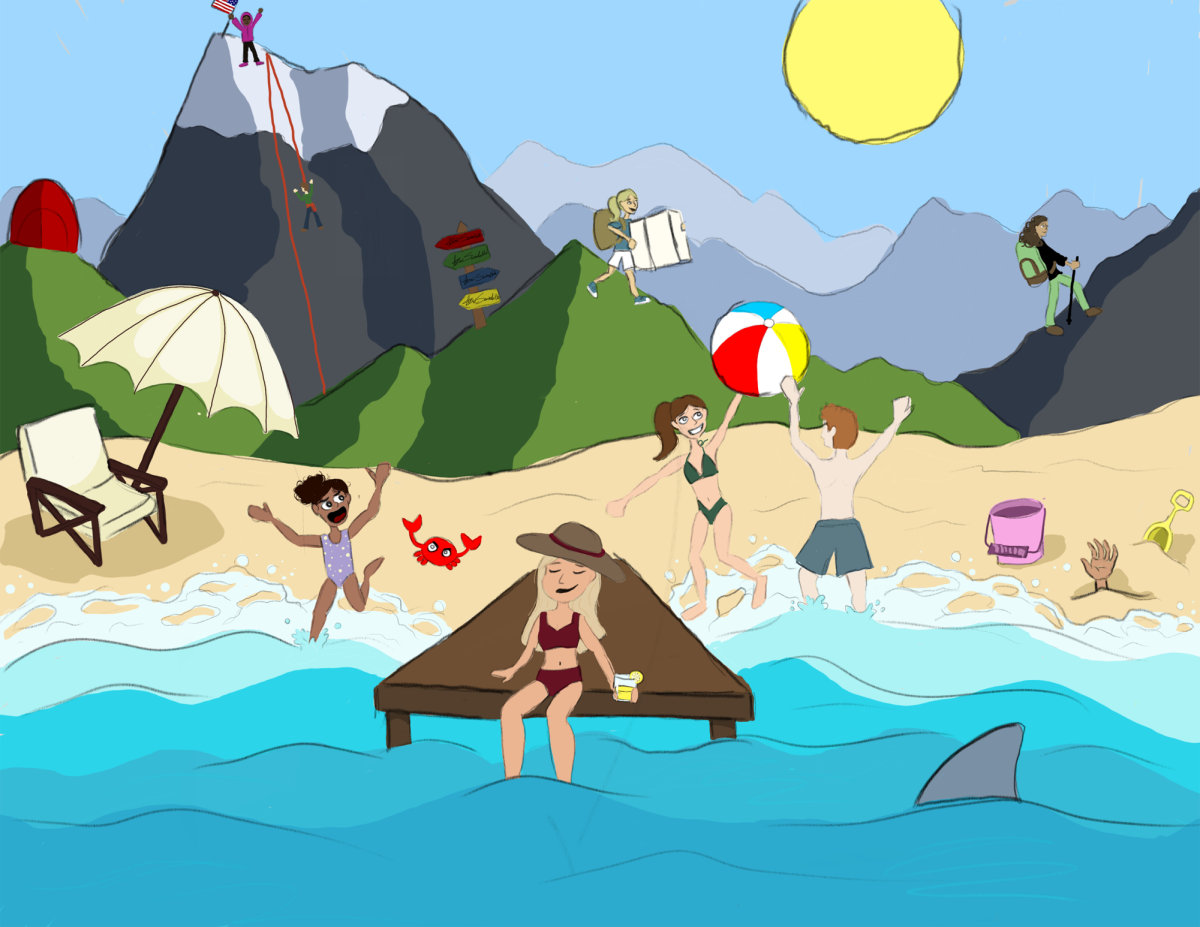Maybe it was being groped in the halls. Maybe it was a catcall on your way to class. Maybe it was an unsolicited comment or picture over Snapchat. Maybe it was a vulgar “joke”. But no matter what sort of sexual harassment you may have faced, you are not alone.
It is an unsettling reality that 86% of women ages 18-24 have been sexually harassed in some way, according to a study conducted by the United Nation. It is disappointing that sexual harassment is the status quo, and that it is all too often brushed off as simply a part of “growing up” a girl.
Daughters, alarmed by sexual harassment, tell their mothers and are met with the response: it happened to me, too. Sexual harassment has plagued generations and has been normalized. Girls are told to cover up, walk different halls, avoid walking alone and carry pepper spray. Mothers pass on tools of survival to daughters. It seems that there is a societal book of rules to play by and a set of expectations to conform to in order to avoid the unsettling experience of objectification.
Even if women do everything right, even if they are cautious and follow every single rule, their safety is not guaranteed. Thirty-three-year-old Sarah Everard was walking on the most well-lit streets, talking to her boyfriend on the phone and wearing brightly colored clothing when she was abducted, sexually assaulted and murdered, according to The Wall Street Journal.
Surveys from 143 countries show that men feel safer than women when walking alone at night, Stop Street Harassment reports.
Wolf-whistling, shouting or making sexually suggestive comments/gestures to someone, is not a compliment. Also known as catcalling, this phenomenon is not a feel-good, happy scenario. We have grown up with the stories of women around us who have been sexually assaulted, raped and murdered after ignoring catcalls. Every news segment about sexual harassment or assault causes us to grip our keys a little tighter and look over our shoulders when walking alone.
A key factor in the normalization of sexual harassment is a lack of accountability. Girls are often dress coded so as to not “distract” boys, but boys are often not held accountable when distracting girls with sexual harassment. Schools across the country have lacked in addressing sexual assault and harassment, having the mentality that a boy’s future is more important than justice and education for women. Not only do boys need to be held accountable, but they need to be educated. Maybe if we educated boys on appropriate ways to interact with girls, we would not need to teach girls how to play defense.
We also need to start teaching girls that sexual harassment is not normal. In educating against the status quo, we should encourage girls to report incidences of sexual assault. When such incidents are reported honestly, it becomes possible to hold the necessary appropriate accountability for aggressors.
Sexual harassment should not be dismissed as a part of life or a necessary step in climbing a career ladder. It should not be the status quo. It should not be something we just have to accept as a part of our journey towards womanhood. We must incite a culture change, so that we no longer have to pass on lessons to our daughters on how to avoid objectification.
The Way We See It: The normalization of sexual harassment ends now
Facing sexual harassment as a part of daily life, people must promote change in education and reduce the sense of normalcy around these incidents.
The Arrowhead Editorial Board
•
June 4, 2021
0
More to Discover






